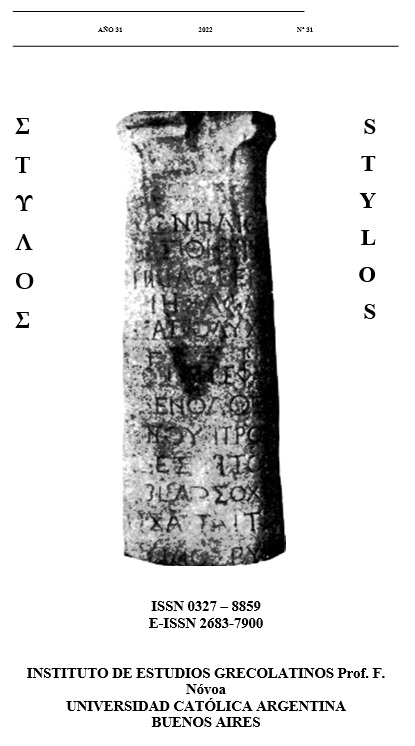PATHOS, AUCTORITAS E IMPERIUM EN LA REPRESENTACIÓN DE VENUS GENETRIX EN ENEIDA
DOI:
https://doi.org/10.46553/sty.31.31.2022.p118-127Keywords:
Venus, Pathos, Auctoritas, Underworld, ImperiumAbstract
In the Aeneid, Venus, mother of Aeneas, plays a central role. Named Venus Genetrix by Caesar in 45 BC, this advocation situated her in the origins of the Gens Iulia and, more broadly, of the Roman People. Venus receives a markedly feminine profile, comparable to that of a Roman matron whose principle task resided in contributing to the formation of good citizens. Venus‟ protagonism is clearly visible in her interventions before danger in Carthage and Italy, and in her intercession before Jupiter. The humanized construction of Venus is represented with expressions such as oculos nitentis (I, 228), laeta (I, 416) and feelings related to anxiety. These expressions can reflect a progressive acceptance of feminine aspects in epic, according to Vicente Cristóbal. We proposes to analyze the configuration of the character of Venus as foundational means in the passage from cosmic to historical order in the foundation of the Empire.Downloads
Downloads
Published
12/22/2022
How to Cite
Zapata, P. (2022). PATHOS, AUCTORITAS E IMPERIUM EN LA REPRESENTACIÓN DE VENUS GENETRIX EN ENEIDA. Stylos, 31, 118–127. https://doi.org/10.46553/sty.31.31.2022.p118-127
Issue
Section
Artículos
License






